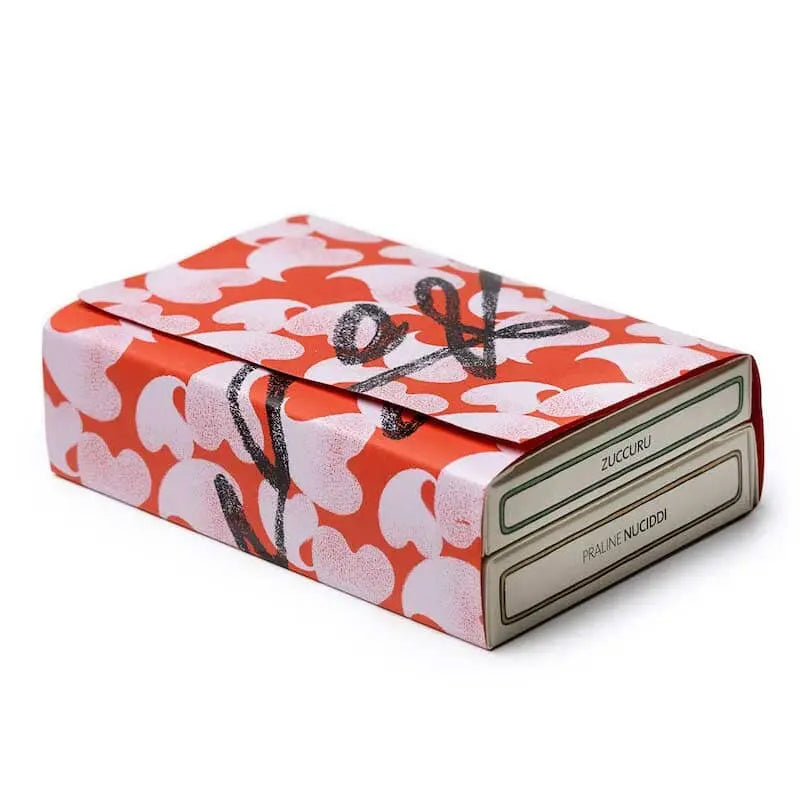| Net weight (grams) |
98 |
|---|---|
| Net weight (Once) |
3,45 |
| Method of conservation |
Store at 14 ° -18 ° C |
| Allergens |
Milk, hazelnuts |
| Shelf Life (months) |
9 |
1
/
up
3
Antica Dolceria Bonajuto
Valentine's Day Bonajuto Box: 6 Nuciddi and Zuccuru pralines, 98 gr
Valentine's Day Bonajuto Box: 6 Nuciddi and Zuccuru pralines, 98 gr
List price
€17.90 EUR
List price
Discounted price
€17.90 EUR
Taxes included.
Shipping costs calculated at check-out.
Quantity
Unable to load pickup availability
Food in Sicily offers a beautiful Bonajuto gift box made exclusively for the Valentine's Day party.
The box contains contains:
- 1 pack of 6 "nuciddi" pralines
- 1 pack of 12 "Zuccuru" chocolate
Additional Information:
The chocolate of'Antica Dolceria Bonajuto, is produced in full respect of the Modican tradition with the highest quality standards.
THE'Antica Dolceria Bonajuto For six generations and for more than 150 years it has been produced and handed down sweets, nougats and chocolate of the Modican and Sicilian tradition, mostly of Arab or Spanish origin.
In 2008 it was included by the Eurispes among the 100 excellence of Italy.
A little story ...
In the most east corner of Sicily, in the splendid and Baroque Modica, the rite of the preparation of the low temperature chocolate with the "bitter pasta", has been handed down from generation to generation.
It was precisely the Spaniards who brought the "Xocolàtl" to Modica, a product that the inhabitants of Mexico obtained from cocoa seeds shredded on a stone called "metate", in order to release cocoa butter and obtain a grainy paste.
The Modicans prepared this process from the Spaniards, without ever going to the industrial phase over time.
In the most east corner of Sicily, in the splendid and Baroque Modica, the rite of the preparation of the low temperature chocolate with the "bitter pasta", has been handed down from generation to generation.
It was precisely the Spaniards who brought the "Xocolàtl" to Modica, a product that the inhabitants of Mexico obtained from cocoa seeds shredded on a stone called "metate", in order to release cocoa butter and obtain a grainy paste.
The Modicans prepared this process from the Spaniards, without ever going to the industrial phase over time.






